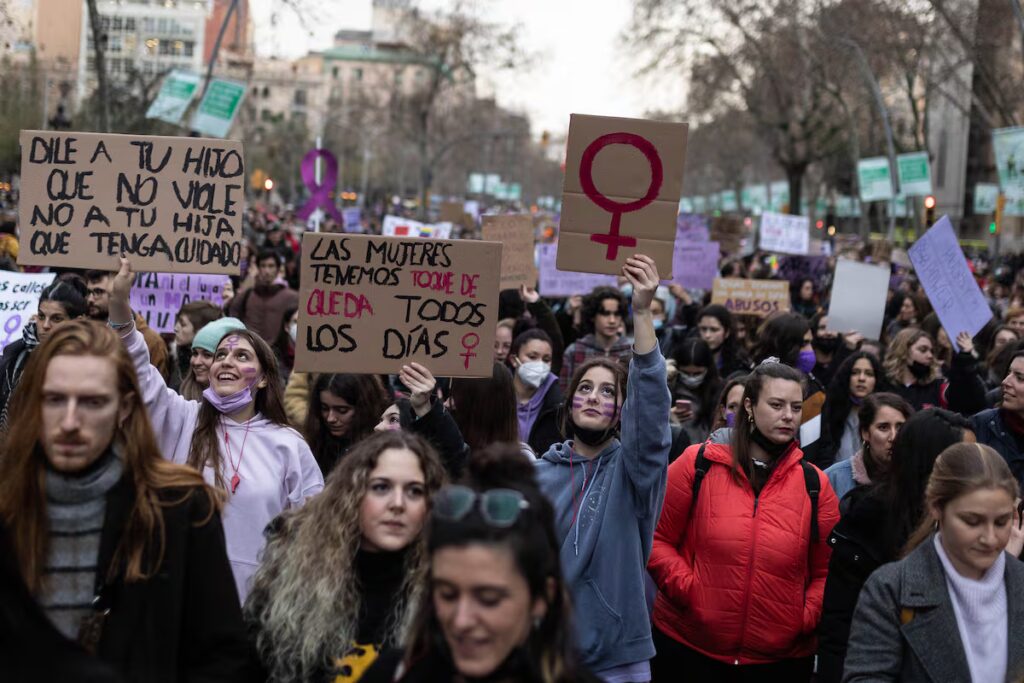
Sexual assaults not only do not stop, but are growing in number and intensity in Catalonia. The Hospital Clínic of Barcelona, one of Spain’s main referral centers, treated 665 cases in the first ten months of this year, 6.5% more than in the same period in 2024. 99% of the attackers were men, while 86.9% of the victims were women. The evolution of these data confirms an even more tragic drama once broken down: more and more attacks take place in apparently safe environments, by known people and with greater intensity, as reports of rape are more numerous. “Every year the situation gets worse, sexist violence is rooted in our society,” complained the general director of the centre, Josep Maria Campistol, who also considers it a “public health problem”. On November 1, the center treated a peak of nine people, while the daily average is two people.
The situation reported by the statistics of the Commission on sexist violence and hospital health has only a couple of positive points: more and more people go to hospital (40%) on their own initiative to ask for help and file a complaint, and the number of those who go to the center after having filed a complaint (12%) or intend to do so (32%) is also growing. But 28% say they are unable to think about deciding what the next steps will be, even if all the cases that reach the Clinic end up being reported to the court in question so that it can activate the judicial process.
The rest of the data continues to be very murky. Starting from the fact that in 2025, until October, there was the largest increase in cases since 2021. Because 65% of the victims were raped (compared to 57.6% a year earlier). Because 57% of attacks against women occurred at home, a place considered safe. And because 60% of the attackers were known; In the case of women, 8.5% of the attackers were partners or ex-partners.
“The hospital is the tip of the iceberg,” underlined Campistol to record that the Clínic, a point of reference in the treatment of cases of sexual violence on people over the age of 16 in Barcelona, shows only part of a problem that increasingly leaves its mark. Four sexual assault trials were scheduled at the Barcelona courthouse this Monday, with a similar number scheduled for the following day. The hospital is asking for more resources to properly monitor a problem it called “crazy” last year.
Gynecologist Maria Àngels Martínez, co-president of the Clinic’s commission on sexist violence, called the data “frightening”. Post-traumatic stress or the ingestion of alcohol or drugs causes only 51% of victims to be able to fully remember the events. 38.8% of them reported physical injuries (from blows or hair pulling to fractures and strangulations).
The profile of the victims is very varied. The youngest person treated at the Clinic was 16 years old (the reference hospital for sexual violence against children is Vall d’Hebron) and the oldest was 89. 38% of the attacks were committed against minors under 25 years of age, while 29 attacks occurred against minors (in one case it was a man), in 5% of cases. And 48% were in a leisure setting at the time of the attack, which also explains why weekends account for nearly half (49%) of emergency room attendance and the summer months are the busiest. The last month of October, however, recorded a peak in cases (77, compared to 84 in August and 82 in June).
The number of people showing up at hospital is increasing and the speed at which they arrive is increasing. 61.8% arrived in the first 24 hours after the attack, a percentage that rises to 80% when the period extends to three days.
Physical intimidation was used in 37% of cases. Group attacks, in fact, represent 10.2% of the total. In 20 cases more than 3 people participated.
“Immediate treatment is very important, but also long-term, due to the large number of health consequences, from post-traumatic stress to obstetric problems,” Martínez explained.
A specialized unit of the Institute of Legal Medicine and Forensic Sciences, dependent on the Generalitat, has been working since February to speed up the process of seeking evidence in cases of sexual violence when a victim goes to a police station or hospital to report sexual abuse or rape when the events occurred in Barcelona or at the Hospitalet de Llobregat. Having notified the court on duty, a forensic expert from that team goes to the center, where he collaborates with a gynecologist, a psychologist and a police investigator. Their task is to obtain as many biological tests as possible and listen to the victim to reconstruct the facts based on their explanations. It does this in the first seven days after the attack, when it is most possible to find biological evidence.
The 016 telephone line assists victims of sexist violence, their families and those around them 24 hours a day, every day of the year, in 53 different languages. The number is not recorded on the phone bill, but the call must be canceled from the device. You can also contact via email016-online@igualdad.gob.esand via WhatsApp on 600 000 016. Minors can contact the ANAR Foundation telephone number 900 20 20 10. In case of emergency it is possible to call 112 or the telephone numbers of the State Police (091) and the Civil Guard (062). And if you can’t call you can use the ALERTCOPS application, from which an alert signal is sent to the Police with geolocation.





